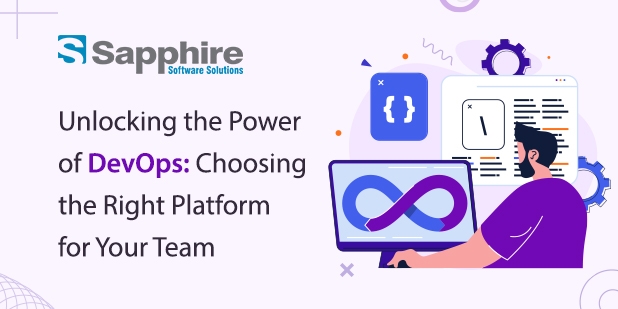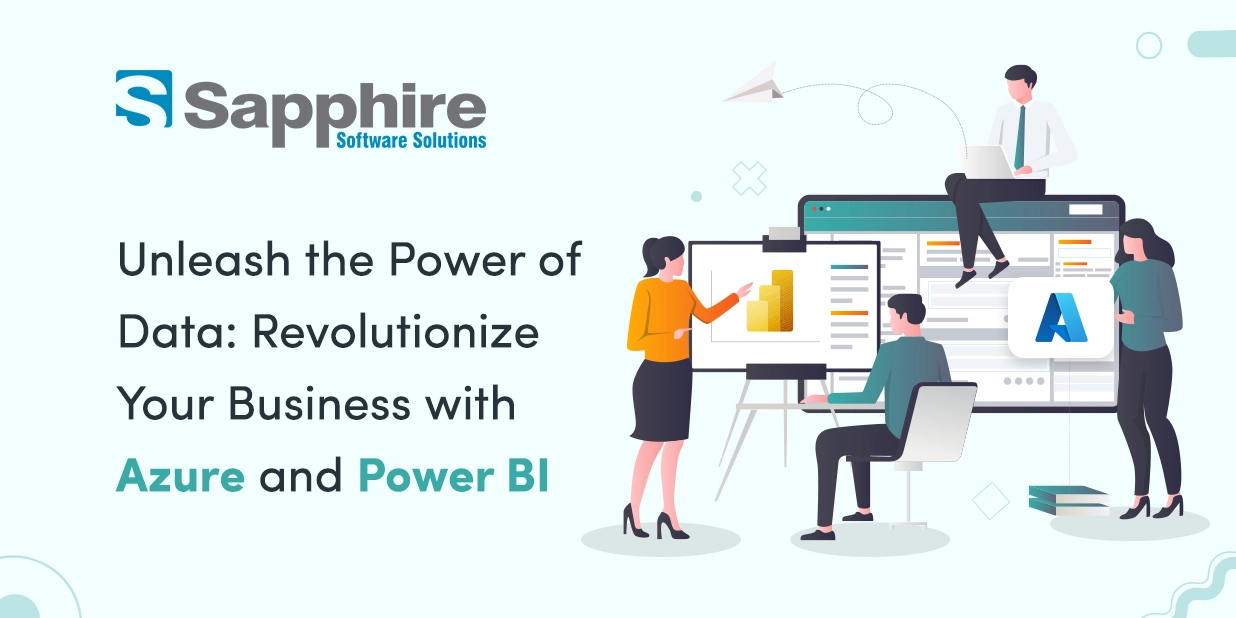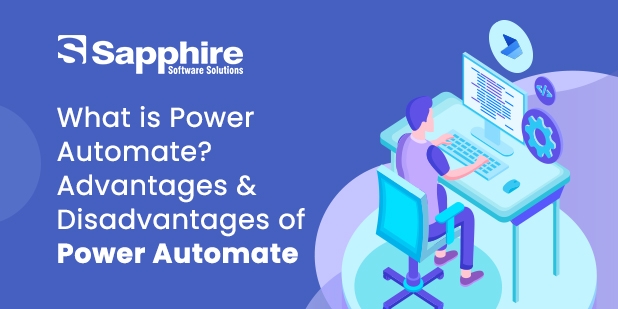DevOps is a robust approach that has arisen in recent years to construct and deploy software applications. Agile software development, continuous integration, and continuous delivery are the three tenets that makeup DevOps. These tenets work together to assist teams in developing high-quality software more timely and effectively. The platform teams use to manage their workflow is one of the essential components that must be included for any successful deployment of DevOps. In this post, we’ll discuss the most critical aspects of selecting a DevOps platform for your team, so make sure you have them in mind before reading on. Check out the best DevOps development services.
What is DevOps?
Before we dig into the technicalities of picking a DevOps platform, let’s first explore what DevOps is and why it’s vital. DevOps is a collection of processes that combines software development (also known as Dev) with IT operations (often known as Ops) to allow teams to provide better quality, more quickly, and more efficient software. The primary goals of the DevOps movement are the elimination of functional barriers between the development and operations teams, as well as the promotion of cooperation, automation, and ongoing quality control.
There are several reasons why DevOps is such an essential concept. First, it helps teams develop software quicker, which is crucial in today’s fast-paced corporate climate. DevOps is a software development methodology that helps teams save the time it takes to build, test, and distribute software by automating activities and optimizing procedures. This enables teams to adapt with more agility to shifting requirements posed by both the company and the customers.
The software quality that teams produce may also be improved with the aid of DevOps. Teams can detect problems and mistakes earlier in the development process when testing and monitoring are automated; this lowers the danger of introducing defects into the production environment. Collaboration between software development teams and operations teams are encouraged by DevOps. This helps to guarantee that software is developed with an awareness of the needs of the operations teams. This can potentially lessen the chance of problems occurring during production while improving the software’s overall stability and availability.
DevOps is a practice that helps teams save expenses by minimizing waste and shortening the amount of time it takes to carry out activities. Teams can free up more time and resources to concentrate on higher-value activities if they automate and streamline any procedures involving repetitive operations. This may, in the long run, contribute to cost reductions as well as greater levels of efficiency.
Choosing a DevOps Platform
Now that we’ve gone over the fundamentals of DevOps and why it’s vital, let’s look at the significant criteria you need to consider when selecting a DevOps platform for your team.
1. Integration Capabilities
When selecting a DevOps platform, the extent to which it can integrate with other systems is one of the most significant features to look for. A suitable platform for DevOps should be able to interface with a range of tools and services used by your team, including testing frameworks, issue trackers, and source control systems. This is significant because it makes it possible for teams to construct a workflow seamlessly integrating all their tools and services.
While assessing the integration capabilities of a DevOps platform, the following should be taken into consideration:
- – With what kinds of applications and services does the platform already come pre-integrated?
- – How straightforward is configuring integrations with various additional tools and services?
- – Can any integration be set, or are there any constraints placed on the types of integrations that may be configured?
2. Automation Capabilities
When selecting a DevOps platform, the automation capabilities of the system are still another crucial aspect to consider. A robust DevOps platform should make it possible for teams to automate processes that are repetitive and simplify the workflows they use. This may include activities like the construction and testing of code, the deployment of applications, and the monitoring of production settings.
Consider the following while analyzing the capabilities of automation offered by a DevOps platform:
- – Which responsibilities are amenable to automation using the platform?
- – How simple is it to develop and administer workflows for automated processes?
- – Is there a limit on the total amount of automation that may be carried out, or are there other restrictions?
3. Scalability
When picking a DevOps platform, scalability is another crucial issue to consider. You will want a platform capable of scaling to meet your requirements as your team’s size and the complexity of your software applications increase. This entails not just the capacity to manage more significant amounts of work but also the capacity to support a more significant number of users.
Consider the following when determining the level of scalability offered by a DevOps platform:
- – How well does the platform deal with significant amounts of work?
- – What are the restrictions placed on the total number of users who may use the platform at once?
- – What are the expenses involved in growing the platform through expanding your team?
4. Security
When it comes to DevOps, security is a significant factor to take into mind. Your data and your apps need to be safe, and a solid DevOps platform should provide you with robust security measures. Access control, encryption, and audit logging are some of the features that fall under this category.
Consider the following while doing a security analysis of the functionality offered by a DevOps platform:
- – What pre-installed safety precautions does the platform provide for users?
- – How difficult is it to set up the security settings on a device?
- – On top of the built-in security features of the platform, what extra security measures are available for implementation?
5. Ease of Use
In conclusion, it is essential to consider how simple it is to operate a DevOps platform. A suitable platform should be user-friendly and straightforward, even for users unfamiliar with DevOps. This may assist in guaranteeing that your staff can quickly adapt and begin using the platform promptly.
Consider the following when determining how easy it is to utilize a specific DevOps platform:
- – How simple is it to install the software and adjust the settings on the platform?
- – How easy is it to navigate via the user interface?
- – What kinds of materials are offered to users so they may learn how to use the platform?
6. Cost
Cost is an essential factor to consider when choosing a DevOps platform. Even while there are free and open-source choices accessible, it’s possible that they won’t provide the same degree of support or functionality as premium platforms. It is essential to thoroughly analyze the expenses involved with using various platforms, such as the fees connected with licensing, the costs associated with maintenance, and any extra costs related to scaling or adding more users.
7. Flexibility
Flexibility is an additional key feature to consider when selecting a DevOps platform. You are looking for a platform that is flexible enough to adjust to your team’s ever-evolving requirements and that can support various software development methodologies. This includes the capacity to handle a variety of programming languages, methods of development, and deployment environments.
8. Support and Community
It is also crucial to consider the degree of support and community surrounding a DevOps platform. It would help if you looked for a platform that has a sizable user community and receives consistent support from the manufacturer. This may help guarantee that you have access to the resources and knowledge you need when you need them, and it can also assist you in promptly resolving any problems that may crop up.
9. Analytics and Reporting
While choosing a DevOps platform, you should pay close attention to the features it has in terms of analytics and reporting. You are seeking for a platform that can give insights into the performance of your team and help you find areas in which you may grow both individually and collectively. This category could include things like the ability to produce personalized reports and dashboards, metrics such as cycle time and lead time, the frequency of deployments, and the ability to track things like those.
10. Compliance and Regulations
In addition to this, it is necessary to take into consideration any compliance or regulatory requirements that may have an effect on the DevOps platform that you decide to utilize. Depending on the industry in which you work or the sort of software you develop, you may be obliged to comply with a particular law or set of standards, such as HIPAA or PCI DSS. Before going ahead with the selection process, you should be certain that the platform you choose can fulfill these requirements and has the necessary certifications and compliance standards.
Conclusion
You must choose the right DevOps development company for success. While comparing various platforms, it is essential to consider several crucial variables, including integration capabilities, automation capabilities, scalability, security, and user-friendliness. As a DevOps development company, we guarantee that your team will be able to develop high-quality software more timely and effectively by carefully considering the considerations above and picking a platform that caters to your group’s requirements.





































